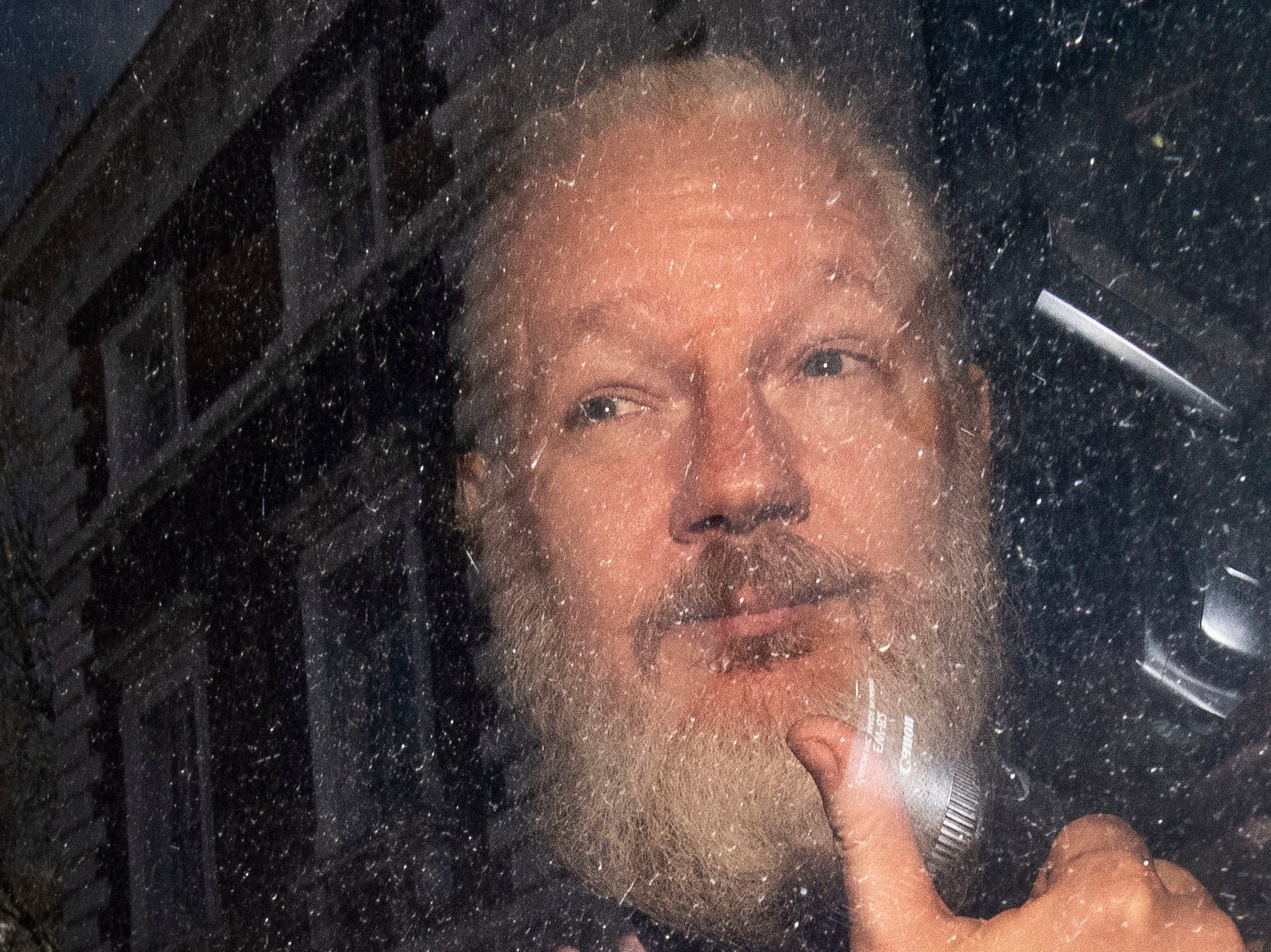
Wikileaks has urged Home Secretary Sajid Javid to block the extradition of Julian Assange to the US over fresh espionage charges in the name of press freedom.
The organisation said Javid was under “enormous pressure to protect the rights of the free press in the UK and elsewhere” after its founder was hit with a raft of new charges by the US Department of Justice.
The 47-year-old, who is currently jailed in Britain, faces 18 counts that relate to his “alleged role in one of the largest compromises of classified information in the history of the United States”.
On Thursday, a grand jury indictment was unsealed to reveal allegations against Assange, who is accused of working with former US army intelligence analyst Chelsea Manning in “unlawfully obtaining and disclosing” hundreds of thousands of classified documents.
The Justice Department said that by publishing unredacted versions of the leaked files, Assange put “named human sources at a grave and imminent risk”.
The department alleges the pair conspired “with reason to believe that the information was to be used to the injury of the United States or the advantage of a foreign nation”.
According to Wikileaks, the charges, 17 of which are under the First World War-era Espionage Act, carry a total of 175 years in prison on conviction.
Wikileaks editor-in-chief Kristinn Hrafnsson branded the new charges “the evil of lawlessness in its purest form”, while the American Civil Liberties Union (ACLU) said the move was “an extraordinary escalation of the Trump administration’s attacks on journalism”.
John Pilger, the Bafta-winning documentary maker, warned that “modern fascism is breaking cover”, tweeting: “Tomorrow it will be you on the New York Times, you on the BBC.”
US actress Pamela Anderson, who struck up an unlikely friendship with Assange, said “more people should be proud of him”.
The Australian was dramatically dragged from the Ecuadorian embassy in Knightsbridge, central London, last month, some seven years after he sought political asylum after the documents were published.
He was then jailed for 50 weeks for a bail breach and is fighting against extradition to the US.
Following his arrest Javid told the Commons that it would be for the courts to determine whether there was any legal reason for Assange to avoid extradition.
The Home Secretary added: “It is right that we implement the judicial process fairly and consistently, with due respect for equality before the law.”
In a statement on Friday, Wikileaks said: “The final decision on Assange‘s extradition rests with the UK Home Secretary, who is now under enormous pressure to protect the rights of the free press in the UK and elsewhere.
“Press rights advocates have unanimously argued that Assange‘s prosecution under the Espionage Act is incompatible with basic democratic principles.
“This is the gravest attack on press freedom of the century.”
Wikileaks said the charges relate to “disclosures of war crimes and human rights abuses by the US Government” that were published online in 2010 and 2011.
The organisation warned the indictment demonstrated “extraterritorial application of US law” and ignored Assange‘s rights as a journalist under the First Amendment of the US Constitution.
Hrafnsson said: “This is the evil of lawlessness in its purest form. With the indictment, the ‘leader of the free world’ dismisses the First Amendment – hailed as a model of press freedom around the world – and launches a blatant extraterritorial assault outside its borders, attacking basic principles of democracy in Europe and the rest of the world.”
Only one charge, of conspiracy to commit computer intrusion, had previously been revealed against Assange.
His lawyer, Barry Pollack, said the initial charge had been a “fig leaf”.
“These unprecedented charges demonstrate the gravity of the threat the criminal prosecution of Julian Assange poses to all journalists in their endeavour to inform the public about actions that have been taken by the US Government.”
The ACLU said the new charges established “a dangerous precedent that can be used to target all news organisations that hold the Government accountable by publishing its secrets”.
Pilger tweeted: “The war on Julian Assange is now a war on all. Eighteen absurd charges including espionage send a burning message to every journalist, every publisher.
“The target today is Assange. Tomorrow it will be you on the New York Times, you on the BBC. Modern fascism is breaking cover.”
According to the US Justice Department, Manning handed over databases containing roughly 90,000 Afghanistan war-related significant activity reports and 400,000 Iraq war-related significant activities reports, the Justice Department said.
There were also 800 Guantanamo Bay detainee assessment briefs and 250,000 US Department of State cables, it added.
Michelle Stanistreet, NUJ general secretary, said: “The latest charges of violating the Espionage Act lodged by the US government raises severe press freedom fears in what amounts to an assault on the first amendment of the US constitution.
“Such a move poses a huge threat, one that could criminalise the critical work of investigative journalists and their ability to protect their sources. It is the latest unacceptable act from an administration determined to treat journalists as enemies of the people.”
Picture: Victoria Jones/PA Wire
Email pged@pressgazette.co.uk to point out mistakes, provide story tips or send in a letter for publication on our "Letters Page" blog
